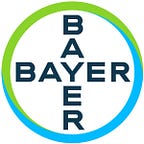Science Bee: What is Biotech?
If you watch the news, chances are you’ve seen the word “biotech” in mentions of new businesses, technological advancements and scientific discoveries. It seems like everyone is talking about it but what does biotech really mean and how does it make its way into our lives?
“Biotech,” or biotechnology, is the use of an organism, or a component of an organism or other biological system, to make a product or process for a specific use. This may call to mind images of cloned sheep and beloved pets, and you wouldn’t be entirely wrong, but biotechnology has been around for centuries, and it encompasses some things you may already be familiar with.
Let’s consider two specific cases: Beer brewing and penicillin. Humans have been brewing beer since the beginning of civilization, with evidence dating back to the Neolithic period. In beer brewing, eukaryotic, single-celled microorganisms, known more commonly as yeast, are combined with a solution of malted barley sugar. The microorganisms that make up yeast then metabolize the solution through fermentation, a chemical process by which sugar molecules are broken down without oxygen. Fermentation finally produces the alcohol found in beer. In this example, yeast, an organism, is used to make a product for human consumption, thus qualifying beer brewing as an example of biotechnology.
You’ve likely heard of penicillin in your history or science classes, and the immense impact this antibiotic has had on the world. Scottish bacteriologist Alexander Fleming first discovered the widely-used antibiotic agent in 1928 when he observed that colonies of the bacterium Staphylococcus aureus failed to grow in areas of a culture that had been accidentally contaminated by the green mold Penicilium notatum. Fleming then isolated the mold and grew the culture in a fluid medium, finding that it produced a substance capable of killing many common bacteria that infect humans with illnesses like toxic shock syndrome and strep throat. Penicillin was purified in the late 1930s, and by 1941, an injectable form of the drug was available for therapeutic use, saving thousands of lives. In this example, mold, an organism, is used to make a product for human use: an antibiotic used to treat bacterial infections.
Today, the biotechnology industry can be broadly segmented into the medical and agricultural markets. In medical biotech, basic research is done to identify genes or proteins associated with devastating diseases which could be used as medicine targets and diagnostic flags. When a new gene or protein target is found, thousands of compounds are typically screened to find medicines that could affect the target. Compounds that seem like they could work as treatments are then optimized, checked for toxic side effects and tested in clinical trials. At Bayer, we use biotechnology in various areas, including in our Crop Science and Pharmaceuticals Divisions. In Crop Science, we use biotech to enhance sustainable agricultural practices, crop utility, and yield, ensuring that there will be food for generations to come. Within Pharmaceuticals, we leverage biotech to advance life by developing new candidate therapies in areas such as heart disease and cancer.
As biotech continues to evolve and rapidly produce new information, techniques and possibilities, it’s helpful to stay informed about the related inventions and products that can affect your everyday life.
Sources:
Paul Diehl, “Learn About Biotechnology and Biotech Industry,” The Balance, https://www.thebalance.com/what-is-biotechnology-375612.
Franz G. Meussfoerffer, “A Comprehensive History of Beer Brewing,” Handbook of Brewing: Processes, Technology, Markets, https://application.wiley-vch.de/books/sample/3527316744_c01.pdf.
The Editors of Encyclopaedia Britannica, “Fermentation,” Encyclopædia Britannica, https://www.britannica.com/science/penicillin.
The Editors of Encyclopaedia Britannica, “Penicillin,” Encyclopædia Britannica, https://www.britannica.com/science/penicillin.
“Intro to biotechnology,” Khan Academy, https://www.khanacademy.org/science/biology/biotech-dna-technology/intro-to-biotech-tutorial/a/intro-to-biotechnology.
